Educate is a verb in the future tense: five words for experiencing school.

"I'm an educator, not a playwright." "Sometimes you feel suffocated by a system that isn't what you dream of: this is a place where you can find renewed energy." "I bring home stories as the founding value of my work." These are the rumors from the summer schools of A tutto tondo , the festival that just concluded in Piedmont, directed by the CRC Foundation . A week in which education came to life for dozens of professionals in the sector and throughout the city, dotted with workshops, live music, shows, and performances.
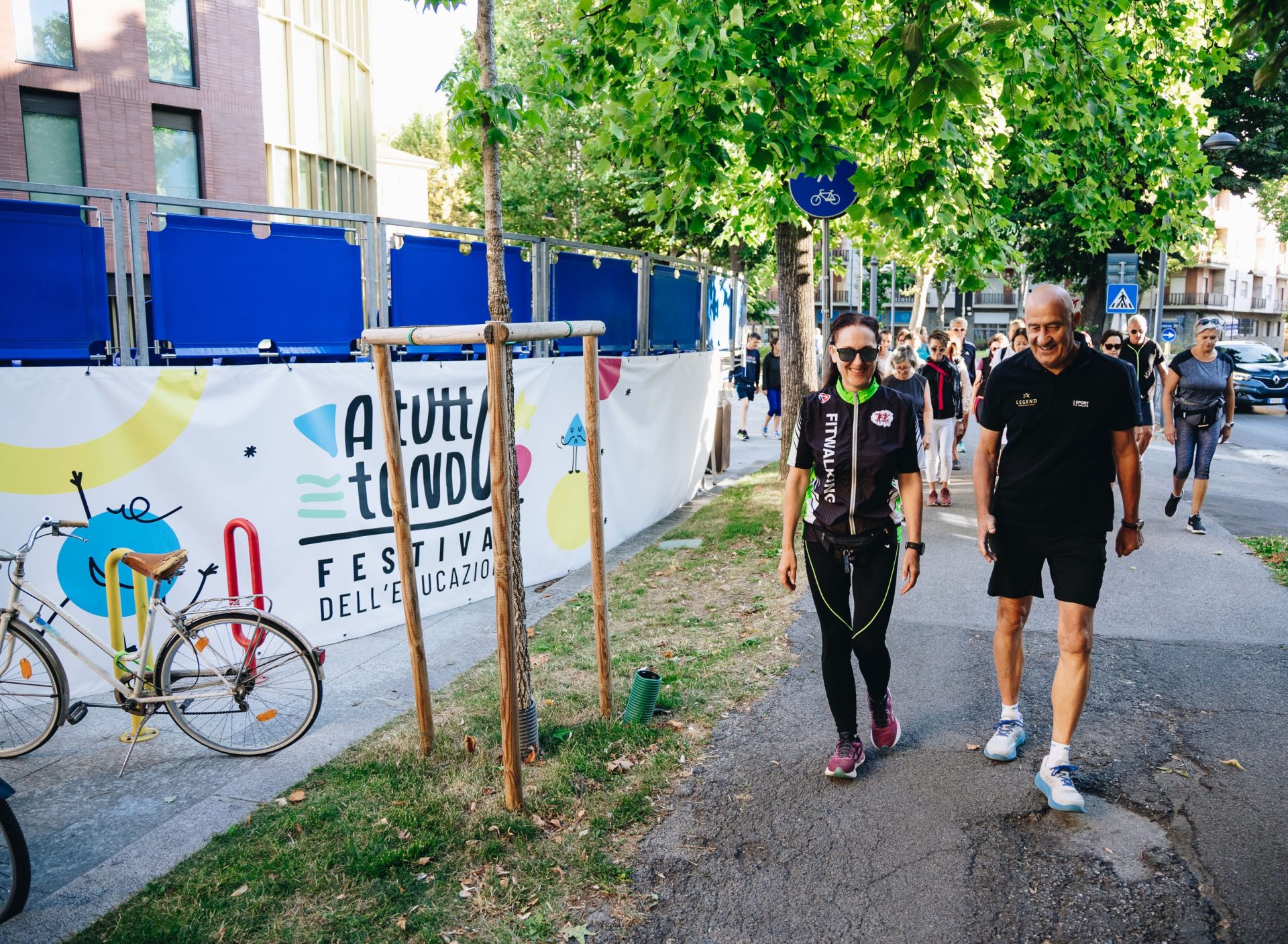
Can you imagine 133 teachers, administrators, and educators from all over Italy and 12 different countries all together in July, discussing school, teaching, artificial intelligence, dialogue practices, play, and much more? Some have observed them in person, gathered in large circles, chatting over breakfast in Piazza Galimberti, the heart of Cuneo, hiking and practicing yoga at dawn, walking along the paths of the river park, or stepping out of the large window of the Rondò dei Talenti, still immersed in their work flow. This is the second year it's happened, but it's already a small revolution.
Let's take it one step at a time. Why here? In Cuneo, the Rondò dei Talenti , an educational center overlooking Viale Angeli, opened in 2022. It was born from an urban regeneration project that revitalized a building constructed in 1978 and which until 2018 housed a bank. Where once stood the tellers and vault, today there is an educational center that is difficult to define: a community space open 365 days a year from 8:00 a.m. to 8:00 p.m., aimed at people aged 0 to 99, which focuses on the theme of talent to catalyze and foster growth, knowledge, and the emergence of ideas. Strongly supported by the CRC Foundation, it hosts educational innovation experiences, a talent city for early career guidance, an education library, a learning center, spaces open to all, and much more.
Light and circularity are the first things you notice upon entering. Words and illustrations brighten the walls along the staircase leading to the four floors. Rondò is a fitting name: the building has a circular floor plan, and above all, here, education is understood as a circle that opens to welcome people, suggestions, needs, and innovations.
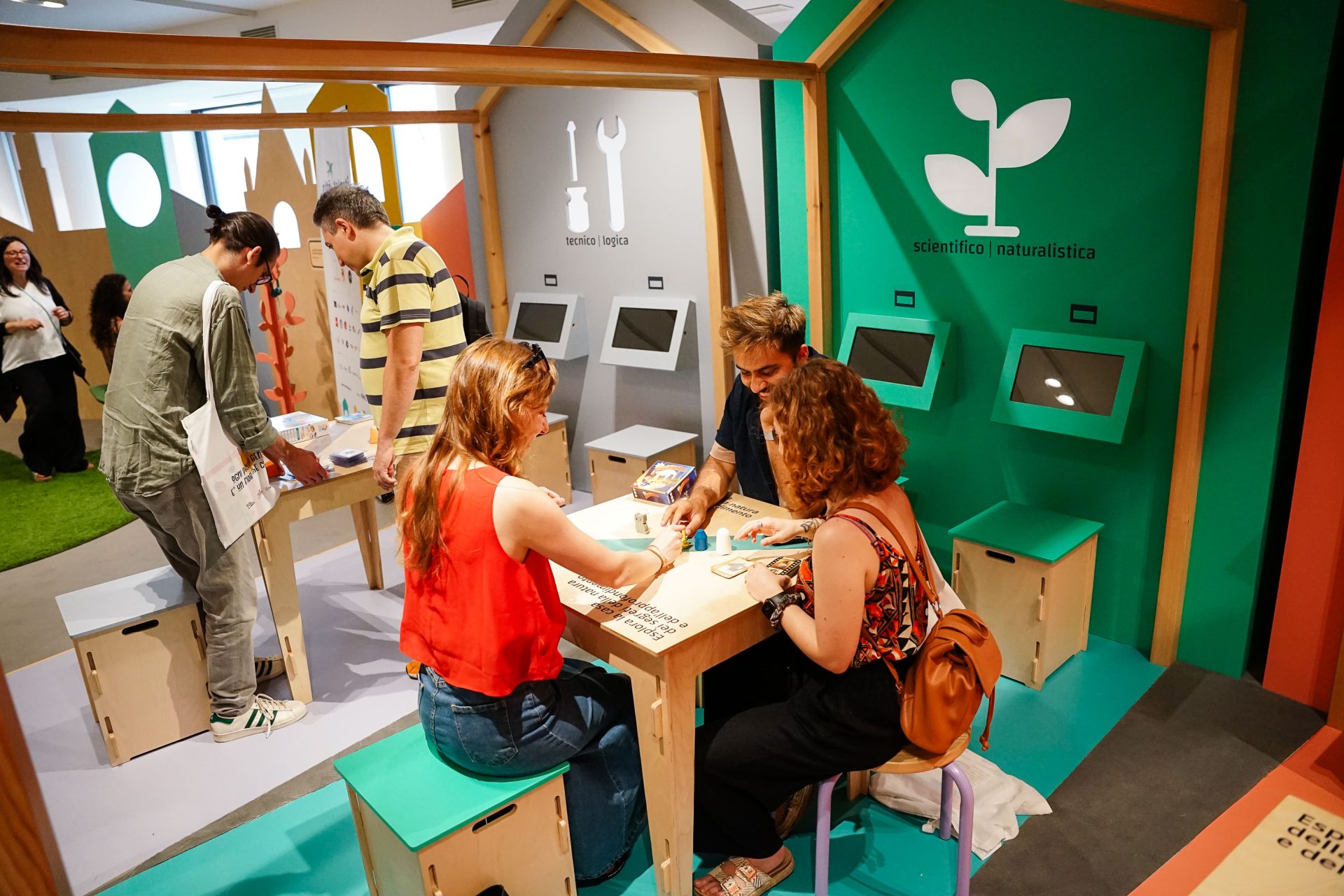
In the summer, the circle grows even larger. Like the tip of a compass, for a week, the Rondò expands its diameter and connects with the world, designing new educational trajectories with pedagogues and teachers, trainers, and experts. In the 2025 edition, participants worked on six thematic areas: "Museum Education," "From Storytelling to Talent," "Games and Outdoor Education," "STEAM Subjects and Artificial Intelligence," "Inclusion and Dialogical Practices," and, in English, " Talent Without Borders " (with the participation of professionals from Belgium, Finland, Georgia, French Martinique, Germany, Greece, Namibia, the Netherlands, Poland, Portugal, Tunisia, and Turkey).
The Festival is part of a broader program that the CRC Foundation has been pursuing for some time, specifically focusing on young people. The 2025-2028 multi-year plan has chosen five key words to guide its action, the same ones that accompanied the four-day summer school: beauty, creativity, care, future, and participation . Before an attentive and engaged audience, during the final plenary session of the training program on Saturday morning, three experts gave these words new meaning, together defining a small vocabulary of education.
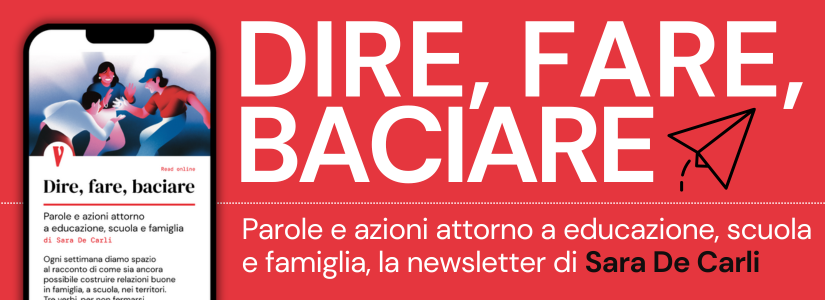
- Creativity, not supermarket
Anna Granata is a professor of Pedagogy at the Department of Human Sciences for Education at the University of Milan-Bicocca, specializing in diversity, equity, and organizational creativity. She has often left the university to give a voice to schools. She was entrusted with the word creativity : "Very often we associate creativity with something naive, disengaged, detached from reality, something that ultimately doesn't serve us. But no, creativity should be understood as a political and educational imperative . There can be no democracy without creativity, and creativity is a need for everyone; no citizen is too old, or too poor, to not be creative. And for me, the image of all this is precisely the Rondò dei talenti, a place where kids arrive on the ground floor already knowing they'll fail and who open themselves to a time that for them would be empty, useless, and instead they land here. Or the homeless who almost come close to saying: I too have the right to talent, I too have the right to creativity."
Every time we talk about peace, every time we welcome diversity in all its forms within the school, every time we teach boys and girls to respect each other, we creatively build a new world.
Anna Granata, teacher of Pedagogy
According to Granata, "Schools today face a very clear crossroads: they must decide whether they want to be a supermarket or a creativity laboratory. Schools are supermarkets when they sell the product you need right now, respond to your needs, and offer what fashion demands today. Or schools can be laboratories: places where we creatively propose an alternative to the world, something that doesn't exist outside right now. Every time we talk about peace and build peace, every time we welcome diversity in all its forms within the school system and almost forget about it because it has become part of the community, every time we teach boys and girls, boys and girls, to respect one another, we creatively build a new world."
From the University of Bologna, Roberto Farn , professor of Pedagogy of Play and Sport, a scholar of the relationship between education and the media and outdoor education, was asked to define the word "care ." "In mythology, Cura was the deity who forges man with the Earth. And so she, Cura, is entrusted with the task of caring for man while he lives: she has forged him and therefore must care for him. We have a duty to care for others, and woe betide us if we didn't. Towards children, our first duty is to protect them, obviously, but we must understand what it means to care for childhood today." Over the last two generations, Farnè explained, " care has become counterproductive, in the sense that it has led to overprotection . It's one thing to protect childhood, but it's another when care becomes expropriation. If we interpret care as total protection because everything is risky, because everything is dangerous, we are actually carrying out an anti-pedagogical operation, that is, we are depriving children of experience."
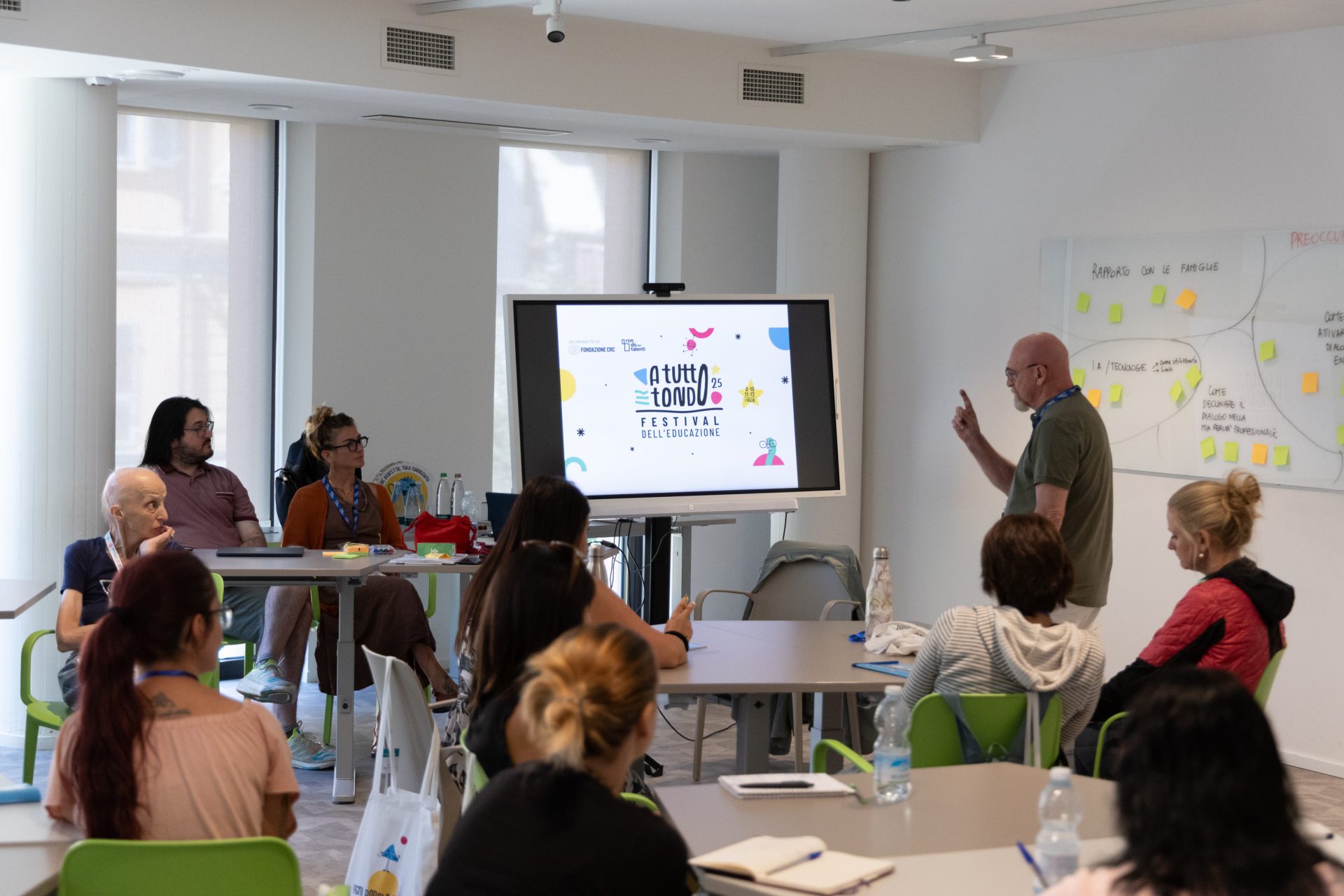
What does anti-pedagogical mean? "When we began focusing on outdoor education in Bologna over 10 years ago with the Research and Training Center, the first thing we saw was the damage done to childhood by excessive care. Children are no longer outside; they're constantly sitting: at school, at home, in the car . Their bodies and their movement are terribly deprived. We need to put children back at the center of their experiences, and by experiences I mean body, movement, sensitivity, sociability, and relationships. I care for children when I enable them to explore and explore the landscape."
Monica Trigona , a journalist for the Giornale dell'Arte, a historian, and a curator of contemporary art exhibitions, defined beauty as "a topic that, throughout the long history of humanity, has been much debated. Today, when we talk about beauty, we no longer refer to the Greek concept of harmony, symmetry, and proportion. Today, beauty is understood in a very different way. In fact, I would say that beauty is almost never discussed. When we refer to contemporary works of art, we are talking about the current and militant production of various artists; we are talking about a production that reflects the complexity of society, not beauty in the strict sense."
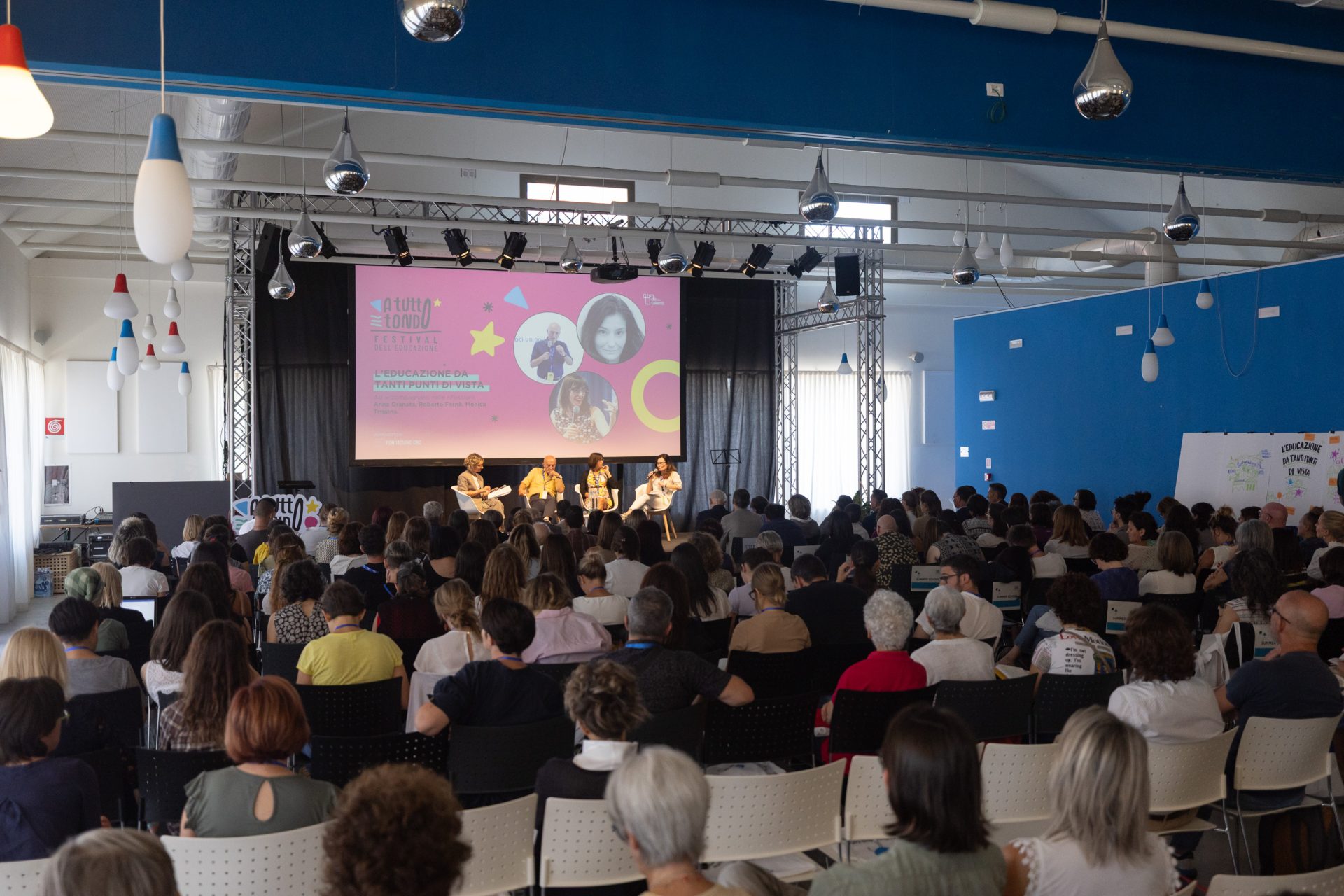
Beauty, therefore, is "a rather debatable concept, in a world where the categories for evaluating a work of art correspond to the work's and the artist's ability to engage their audience. The great challenge for artworks today is to be able to reach a diverse, heterogeneous audience , ranging from elementary school children to grandparents who find art not just a pastime but a field of great interest and discovery." For this to happen, Trigona said, "we need to consider that museums are not the only places dedicated to art: there are many initiatives that reach the public almost unconsciously. I believe that beauty exists today, but in its most diverse connotations, which concern its ability to activate the community and reflect contemporary complexity."
- Participation is not taught
Participation (Granata is clear about this word) "can't be taught, explained, or perhaps even learned in the most traditional sense. We strive for civic education, citizenship education, but in reality, these are shortcuts that ultimately don't get us to the goal. On the topic of participation, I think we need to think by osmosis: our students are watching us, observing us. So today's teacher must be a fully fledged citizen who lives participation , someone who stays informed, who is active and proactive on social media, who is always committed, even when on vacation, to being an example for the new generations."
Finally, the future , which in Farné's sense is the essence of the educator's profession. " A teacher is someone who prepares the future , who glimpses it before others, because education has the future as its perspective. The temporal dimension of education is neither in the past nor in the present: it is the future. Anyone who teaches is subjected to a frustration that we might call ontological: it is the frustration of someone who won't see the final product of their efforts. But they sense it. This is why I get angry with certain school policies that are completely focused on the present. The issue isn't making school current, filling it with new technology: the issue is addressing the fundamentals, because if the school doesn't address them, no one will."
Are four days enough to change a perspective? It's hard to say. Certainly, however, on Saturday morning, there was a palpable attention, a concrete desire to listen and connect, to bring home an educational boost. As Mauro Gola , president of the CRC Foundation, said, "we are building an innovative and cohesive educational community." The plenary session concluded with the words that the summer school participants chose to sum up their experience: adventure , co-responsibility , spaciousness , energy , otherness , wow . They all have one thing in common: they look to the future.
The photographs are by Fondazione Crc, the video is by the author of the article
For 30 years, VITA has been the leading publication for social innovation, civic activism, and the third sector. We are a nonprofit social enterprise: we tell stories, promote campaigns, and engage with businesses, politicians, and institutions to promote the values of public interest and the common good. We are able to do this thanks to those who choose to support us.
Vita.it





